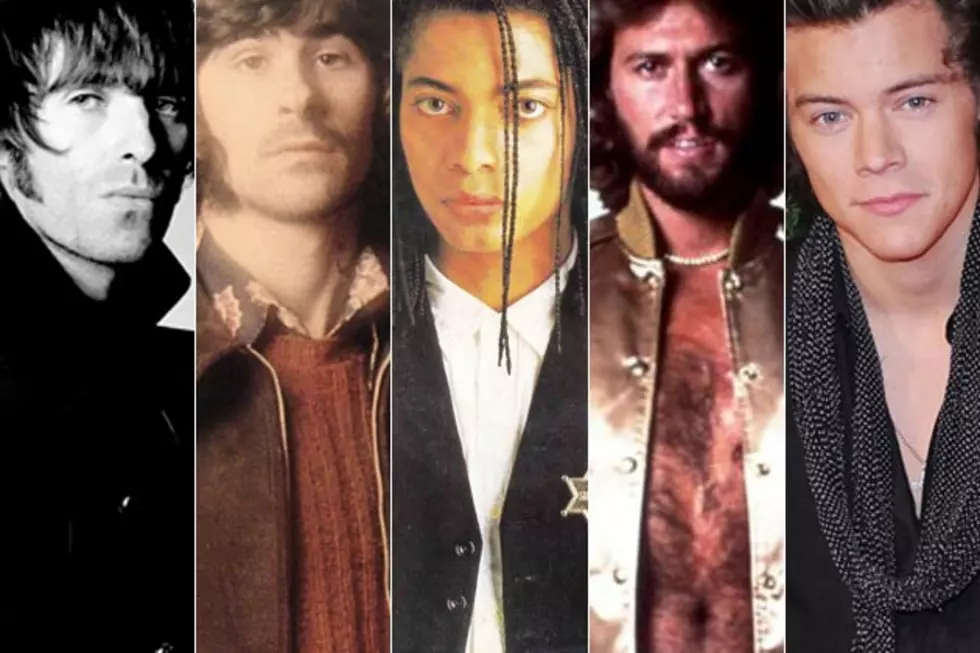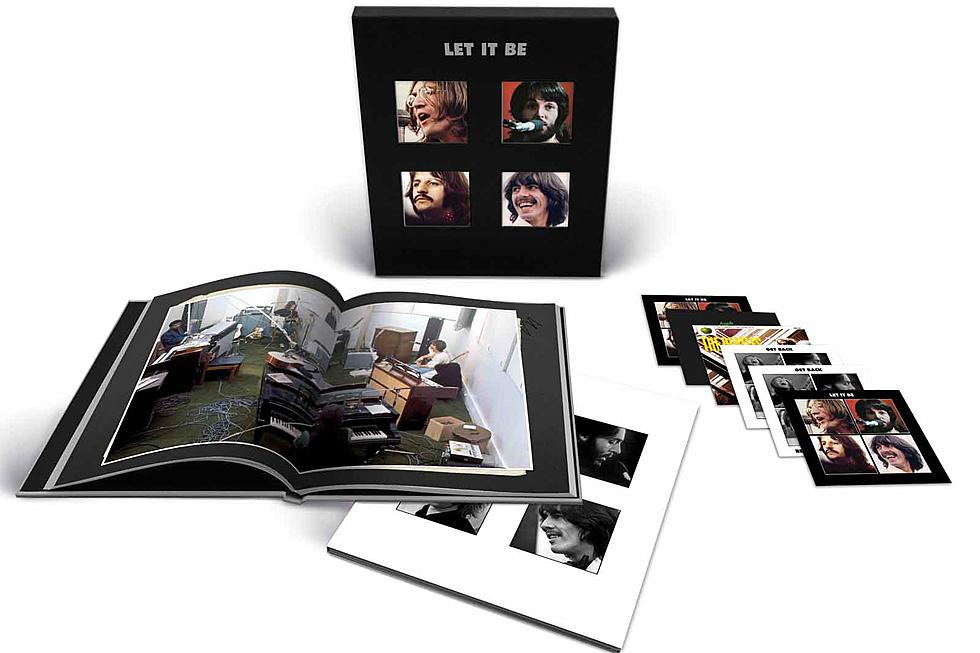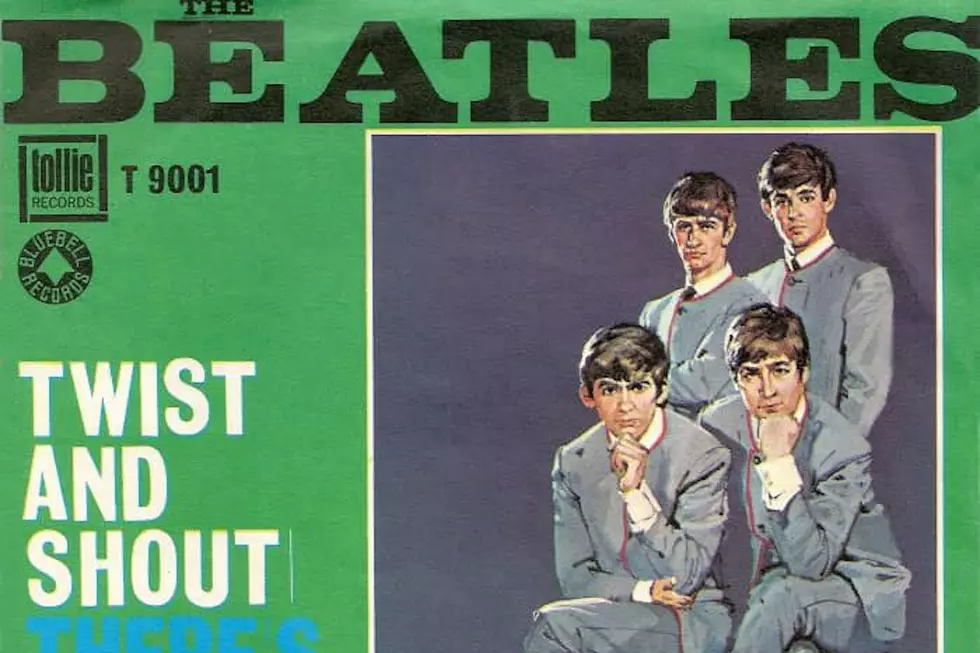
Eight Bands Who Were Foolishly Labeled ‘The Next Beatles’
It's been more than 50 years since the Beatles and Beatlemania took the world by storm, dominating popular culture in a way that hadn't been seen before or since. In that time, many bands have been declared -- or even more foolishly, declared themselves -- "The Next Beatles." But in all that time, have any approached the impact of the originals?
The Bee Gees
While the Bee Gees – brothers Barry, Robin and Maurice Gibb – are best known for the disco tunes that propelled the ‘Saturday Night Fever’ soundtrack to the top of the charts, the Aussies hoped to become part of the British Invasion in 1967. The Bee Gees were touted by manager Robert Stigwood as the “next Beatles” upon the release of their first U.S. single, ‘New York Mining Disaster 1941.’
Atco Records sent DJs copies of the single with blank labels to create the impression that it was a new Beatles’ song. “If you sounded like the Beatles and also could write a hit single, then the hype of the machine would go into action,” Barry recalled in ‘The Bee Gees: Tales of the Brothers Gibb.’ “Your company would make sure people thought you sounded like the Beatles or thought you were the Beatles. And that sold you.”
The Bee Gees in a way became the Beatles when they starred as the reformed eponymous band in the 1978 film ‘Sgt. Pepper’s Lonely Hearts Club Band.’ The brothers gamely performed a number of Beatles’ tunes with Peter Frampton but couldn't save this megaton bomb of a movie.
The Bay City Rollers
In September 1975, the Bay City Rollers made their U.S. debut on ABC’s ‘Saturday Night Live with Howard Cosell.’ The Scottish boy band, who wore tartan plaid on stage, was introduced by Cosell as the “new Beatles.”
“We’re not saying we’re bigger than the Beatles,” Rollers’ manager Tam Paton told Creem in 1976. “They were fantastic. They were great. And at the time, they were the biggest thing since sliced bread. I just hope people will talk about the Rollers the same way they talk about the Beatles in ten years time. And I believe, deeply, that they will.”
That didn't happen. A few hits followed but, by 1978, the Bay City Rollers had disappeared from the charts.
Badfinger
Badfinger seemed poised to become the “next Beatles” when they signed with Apple Records and scored a Top 10 hit in 1970 with ‘Come and Get It,’ written and produced by Paul McCartney. Comparisons with the Beatles increased as members of the band performed on records by John Lennon, Ringo Starr and George Harrison.
“After a while it got a little bit tiresome,” guitarist Joey Molland told WROK. “People expected John to show up or George, maybe Paul would come and play a bit of bass. A lot of people actually thought it was the Beatles playing under different names. What do you do about that? There was nothing we could do.”
The tragedies and bad luck that followed for Badfinger have, of course, become legend.
The Knack
When Rolling Stone in 1979 christened the Knack “the new fab four,” comparisons to the Beatles were inevitable. Then there was their contract with Capitol Records -- which was, of course, once the Beatles’ U.S. label. Capitol hardly discouraged the association, using their Beatles-era orange and yellow label for the Knack’s 1979 debut hit, ‘My Sharona.’ The group was staged against a black background, a la ‘Meet the Beatles!,’ for the cover photo of their platinum LP ‘Get the Knack.’
“It was a joke. It was a tongue-in-cheek joke,” singer Doug Fieger admitted to Classic Bands. “If you sell six million copies, people aren't gonna look at you in the same way as if you sell 50,000 copies. They're not gonna cut you the same slack.”
Critics soon turned on the band, which was unable to repeat the overnight success of ‘My Sharona.’ A “Knuke the Knack” campaign was started and, in mid-1982, the band split up.
Terence Trent D'Arby
In 1987, critics and fans embraced ‘Introducing the Hardline According to Terence Trent D’Arby.’ The singer-songwriter was equally impressed with himself. “I can justifiably say that my first album will be one of the most brilliant debuts from any artist in the last 10 years." He would later brag, “My album is better than 'Sgt. Pepper,'” the Beatles’ landmark 1967 release.
Reality soon caught up with D’Arby. His follow-up album didn’t crack the Top 50; the next two barely charted. D’Arby reemerged in 2001 with a new name, Sananda Maitreya, and a new attitude.
“Maybe [some critics] missed the fact that half the time what I said was meant to be funny and ironic,” he once told People. “But the fact is, I played a media game and got my fingers burned, and I have no one to blame but myself. I thought ‘The Hardline’ was good, but I knew that a lot of people make good records that never get heard. I was going to do everything in my power to make sure that didn't happen. I did my job – perhaps a little too well.”
Oasis
The core of British rock group Oasis were brothers Liam and Noel Gallagher, who have peppered their music with lyrical references to Beatles’ songs like ‘Yellow Submarine’ and ‘Helter Skelter.’ The band has even lifted whole riffs from Beatles’ tunes.
“It's really important to be bigger than the Beatles,” Liam said in 1996. “I think we're better than the Beatles. … They ain't the best band in the world – we are.” By 2009, however, Oasis was over -- thought the Gallaghers continue to cover Beatles’ songs with their new bands.
Paul McCartney told Q magazine that he was honored that his songs have been copied, "even when things happen like Oasis saying, ‘We are the next Beatles.’ But I also think, ‘Listen, lads, you can’t say that. And don’t say that because it’s probably the kiss of death!’”
One Direction
Since they formed in 2010 on the British TV singing competition ‘The X Factor,’ boy band One Direction has become the first group to top the Billboard charts with their first three albums. After the success of their debut LP in 2012, Paul McCartney cautioned the band on Britain's Daybreak TV show. “So many bands, they all get called the next Beatles. It puts an awful lot of pressure on them to be the next Beatles. Oasis were the next Beatles once, if you remember. It's pressure because suddenly you have got to live up to all the things that we did.”
By 2014, One Direction singer Harry Styles told Top of the Pops magazine that 1D has become even bigger than the Beatles. “We all sat and watched the film of the Beatles arriving in America. And, to be honest, that really was like us. Stepping off the plane, the girls, the madness. It was exactly the same as when we got there – just 50 years earlier.”
Styles added, “None of us think we're in the same league as them music-wise. We'd be total fools if we did. Fame-wise, it's probably even bigger.” Let's see how that works out for them.
BTS
Hailing from Seoul, South Korea, BTS became the globe's largest exporter of K-pop in the second half of the '10s. The seven-piece boy band first started releasing music in 2013, and then extended their reach to Japan a year later. In 2016, their second album, Wings, made inroads into the U.S. market, peaking at No. 26 on the Billboard 200.
That had been the highest chart position for a K-pop act in the U.S. up to that point, but they exploded soon after that. Love Yourself: Tear and a compilation of their earlier work, Love Yourself: Answer, both topped the American album chart in 2018. The day after the release of 2019's Map of the Soul: Persona, they appeared on Saturday Night Live. Their success has prompted outlets like CNN, the BBC and Forbes to compare their popularity and influence to Beatlemania,
In addition, they've partnered with the United Nations to launch an initiative aimed at global education and the prevention of youth violence.
BONUS: You Think You Know The Beatles?
More From 103.7 The Hawk









